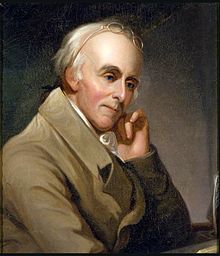
Expedition medicine
| Synonym | Expeditionary medicine |
|---|---|
| Subdivisions | Travel Medicine General environmental medicine Battlefield medicine High Altitude Medicine |
Expedition Medicine (sometimes known as expeditionary medicine) is the field of medicine focusing on providing embedded medical support to an expedition, usually in medically austere or isolated areas. Expedition medicine provides the physical and psychological wellbeing of expedition members before, during, and after an expedition. Expedition medicine may be practiced in support of commercial, non-governmental organizations, and government expeditions. Some medical governing bodies consider expedition medicine as a field within wilderness medicine, whilst others considered it be a separate discipline.

History
Ancient Era
This field of expedition medicine has ancient origins and has been practised almost since the advent of medicine and expeditions. Many ancient civilizations embedded medical staff with military units.
Medieval Era
As expedition and merchant crews grew during the later medieval era, barber surgeons and other medical staff were added to the crew compliment.
Age of Discovery
During the Age of Discovery, expedition medicine planning became more integral to explorers on land and sea, especially in the prevention of scurvy. Many explorers, to include Cristopher Columbus, traveled with surgeons as part of their crew.
Modern Era
Benjamin Rush provided medical training and equipment to the Lewis and Clark Expedition.
During the period of American settlement in the early 19th century, expeditionary medicine preparedness and support became standard concerns for wagon trains.
In the late 19th century, the influence of notable medical practitioners like Friedrich von Esmarch and members of the Venerable Order of Saint John pushing for every adult man and woman to be taught the basics of first aid eventually led to institutionalized first-aid courses and standard first-aid kits in the military and eventually in other medically austere locations.
Each of the expeditions led by Ernest Shackleton included two surgeons.Dr. Alistair Mackay, the assistant surgeon on the British Antarctic Expedition of 1907–1909, is known for being the first person (along with Douglas Mawson and Edgeworth David) to reach the South Magnetic Pole on 16 January 1909.
Michael Phelps Ward was the expedition doctor on the 1953 first ascent of Mount Everest with Sir Edmund Hillary.
Modern advances, such as the use of remote physiological monitoring devices, have allowed expedition medicine providers to monitor and treat medical situations quickly.
See also
External links
| People | |
|---|---|
| Vehicles | |
|
Casualty lifting and movement |
|
| Other | |
| Related fields | |

